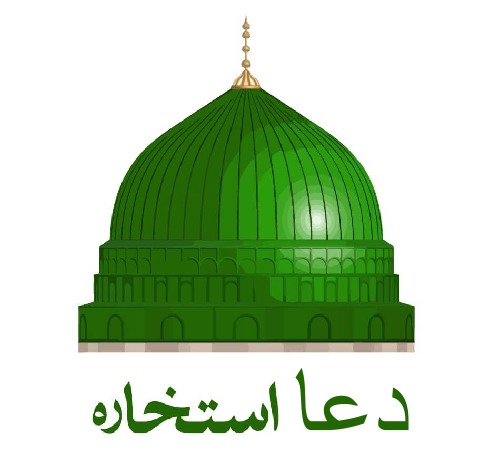Correct Way to Pray Istikhara Uk | Istikhara Dua & signs
Correct Way to Pray Istikhara Uk – What is Istikhara Dua & Why It Matters Correct Way to Pray Istikhara Uk – What is Istikhara Dua & Why It Matters The Correct Way to Pray Istikhara Uk follows the authentic Sunnah taught by Prophet Muhammad (PBUH). Istikhara Dua is a special supplication recited after two rak’ahs of voluntary prayer to seek Allah’s guidance in important decisions like marriage, career, business, or studies. In the UK and worldwide, Muslims use this powerful prayer for clarity, peace, and barakah. The Holy Quran – the ultimate source of guidance and peace What is Istikhara Dua? Meaning & Purpose Istikhara means seeking the best (khair) from Allah. The Correct Way to Pray Istikhara Uk involves humility, tawakkul, and asking Allah to decree what is good for your deen, livelihood, and hereafter. Correct Way to Pray Istikhara Uk – Step-by-Step Guide Authentic Method to Perform Istikhara Prayer Perform wudu (ablution) properly. Make sincere intention (niyyah) for Istikhara to seek Allah’s guidance on your specific matter. Pray two rak’ahs nafl (voluntary) prayer: Recite Surah Al-Fatiha in each, followed by any surah (recommended: Al-Kafirun in first, Al-Ikhlas in second). After salam, raise hands and recite the Istikhara Dua (below), mentioning your matter (e.g., “this job” or “this marriage”). Trust Allah’s plan; guidance comes through ease, heart inclination, or circumstances. Repeat up to 7 nights if needed, but one sincere performance suffices. Raising hands in dua – the Correct Way to Pray Istikhara Uk for divine guidance Benefits of Istikhara Dua – Why It Matters Following the Correct Way to Pray Istikhara Uk brings immense rewards: Divine guidance from Allah’s perfect knowledge for the best outcome. Inner peace, reduced anxiety, and contentment with Allah’s decree. Protection from harm and opening of blessed paths (barakah). Stronger tawakkul (reliance on Allah) and deeper faith. Alignment of decisions with deen, success in this life, and hereafter. Removal of regret through trust in Allah’s wisdom. Full Istikhara Dua – Arabic, Transliteration & English Recite in the Correct Way to Pray Istikhara Uk after the prayer: Arabic: اللَّهُمَّ إِنِّي أَسْتَخِيرُكَ بِعِلْمِكَ وَأَسْتَقْدِرُكَ بِقُدْرَتِكَ وَأَسْأَلُكَ مِنْ فَضْلِكَ الْعَظِيمِ فَإِنَّكَ تَقْدِرُ وَلَا أَقْدِرُ وَتَعْلَمُ وَلَا أَعْلَمُ وَأَنْتَ عَلَّامُ الْغُيُوبِ اللَّهُمَّ إِنْ كُنْتَ تَعْلَمُ أَنَّ هَذَا الْأَمْرَ خَيْرٌ لِي فِي دِينِي وَمَعَاشِي وَعَاقِبَةِ أَمْرِي فَاقْدُرْهُ لِي وَيَسِّرْهُ لِي ثُمَّ بَارِكْ لِي فِيهِ وَإِنْ كُنْتَ تَعْلَمُ أَنَّ هَذَا الْأَمْرَ شَرٌّ لِي فِي دِينِي وَمَعَاشِي وَعَاقِبَةِ أَمْرِي فَاصْرِفْهُ عَنِّي وَاصْرِفْنِي عَنْهُ وَاقْدُرْ لِيَ الْخَيْرَ حَيْثُ كَانَ ثُمَّ أَرْضِنِي بِهِ Transliteration: Allahumma inni astakheeruka bi’ilmika wa astaqdiruka biqudratika wa as’aluka min fadlikal-‘azim fa innaka taqdiru wa la aqdiru wa ta’lamu wa la a’lamu wa anta ‘allamul-ghuyub. Allahumma in kunta ta’lamu anna hadhal-amra [mention matter] khayrun li fi deeni wa ma’ashi wa ‘aqibati amri faqdurhu li wa yassirhu li thumma barik li fihi wa in kunta ta’lamu anna hadhal-amra sharrun li fi deeni wa ma’ashi wa ‘aqibati amri fasrifhu ‘anni wasrifni ‘anhu waqdur liyal-khayra haythu kana thumma ardini bihi. English Translation: O Allah, I seek Your guidance by Your knowledge, ability by Your power, and from Your great bounty. You have power; I have none. You know; I do not know. You know the unseen. O Allah, if You know this matter [mention it] is good for me in my religion, livelihood, and hereafter, decree it for me, make it easy, and bless it. If it is bad, turn it away from me, turn me away from it, decree good wherever it is, and make me content. Frequently Asked Questions – Correct Way to Pray Istikhara Uk What is the Correct Way to Pray Istikhara Uk? Perform wudu, pray 2 rak’ahs nafl, then recite Istikhara Dua mentioning your matter. Guidance comes through ease or inclination, not always dreams. Does Istikhara always show a dream as a sign? No — signs include heart inclination, ease in the matter, or circumstances opening/closing. Trust Allah’s plan beyond dreams. How many times should I pray Istikhara? One sincere performance is enough, but repeat up to 7 nights if unclear. No fixed number required. Can I pray Istikhara for any decision? Yes — for marriage, jobs, studies, or daily matters. It’s Sunnah for seeking khair in all affairs. What if I feel nothing after Istikhara? Proceed with what feels best after dua; Allah may guide through facilitation or obstacles. Consult knowledgeable people too. Master the Correct Way to Pray Istikhara Uk with sincerity for Allah’s best guidance. May He grant us all khair. Ameen. Whatsapp now All Posts IStikhara dua What is Istikhara Dua & Why It Matters Uk: Guide February 3, 2026/ What is Istikhara Dua & Why It Matters – Complete Guide to Seeking Allah’s Guidance What is Istikhara Dua &… Read More Dawateislami istikhara Manchester – 2025 January 1, 2026/ Dawateislami Istikhara Manchester – Your Trusted 2025 Guidance Service You’re in your home in Cheetham Hill, Rusholme, Longsight or Oldham…… Read More istikhara online Manchester – 2025 January 1, 2026/ Istikhara Online Manchester – Your 24/7 Authentic Guidance in 2025 You’re in your flat in Rusholme, Cheetham Hill, Longsight or… Read More Load More End of Content.










